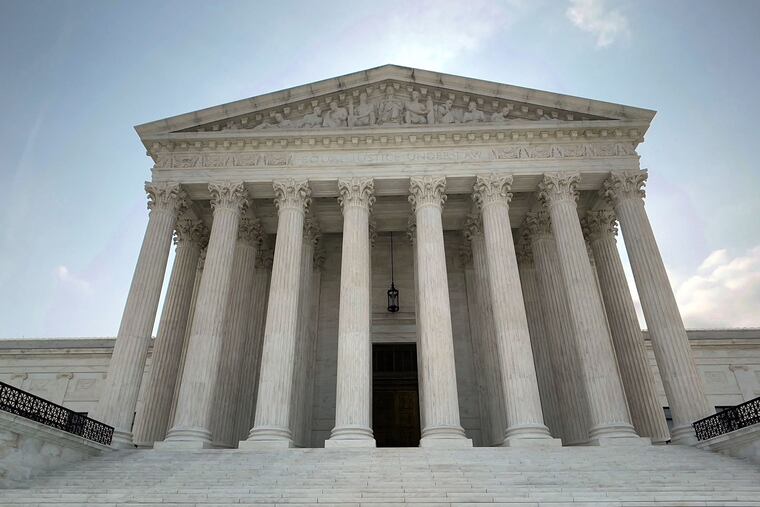The Supreme Court will hear another clash pitting religious rights against laws protecting LGBTQ people from discrimination
At issue is the same Colorado anti-discrimination law that came before the court in 2018, when the justices ruled for baker Jack Phillips, who refused to create a wedding cake for a gay couple.

The Supreme Court on Tuesday said it will decide whether a Colorado designer can tell same-sex couples she will not create a website for their weddings, reviving the issue of where to draw the line between someone’s religious beliefs and protections against discrimination for LGBTQ people.
At issue is the same Colorado antidiscrimination law that came before the court in 2018, when the justices ruled for baker Jack Phillips, who refused to create a wedding cake for a gay couple. The justices decided the Colorado Civil Rights Commission displayed bias against religious views in ruling against Phillips. But they did not resolve the larger question of when businesses may invoke religious objections to refuse service.
The court restricted the new case to whether applying Colorado's law "to compel an artist to speak or stay silent violates the free speech clause of the First Amendment."
The court will hear the case, 303 Creative LLC v, Elenis, in the term that begins in October.
According to her filings in the Supreme Court, Lorie Smith is an artist and website designer who plans to go into the wedding website business. She wants to create only websites that "that promote her understanding of marriage as between one man and one woman, and she would like to post an online statement explaining she can only speak messages that are consistent with her religious convictions."
But Colorado's Anti-Discrimination Act (CADA) doesn't allow businesses to withhold their services from LGBTQ customers.
A lower court ruled for the state, and a panel of the U.S. Court of Appeals for the 10th Circuit agreed in a 2-to-1 vote. The panel agreed Colorado was restricting Smith's speech, but said it could be justified.
"Colorado has a compelling interest in protecting both the dignity interests of members of marginalized groups and their material interests in accessing the commercial marketplace," Judge Mary Beck Briscoe wrote.
Dissenting Judge Tim Tymkovich cited George Orwell, and said the decision imposes government-approved messages on individuals, subverting "our core understandings of the First Amendment."
Colorado had asked the Supreme Court not to take up the case. It said Smith was looking for a fight, because she's never offered her services and turned down a same-sex couple, nor is there evidence Colorado is looking to punish her for her views.
“Prohibiting companies from displaying what would amount to ‘Straight Couples Only’ messages is permissible because it restricts speech that proposes illegal activity and is therefore unprotected by the First Amendment,” Colorado Attorney General Phillip J. Weiser said in a filing to the Supreme Court.